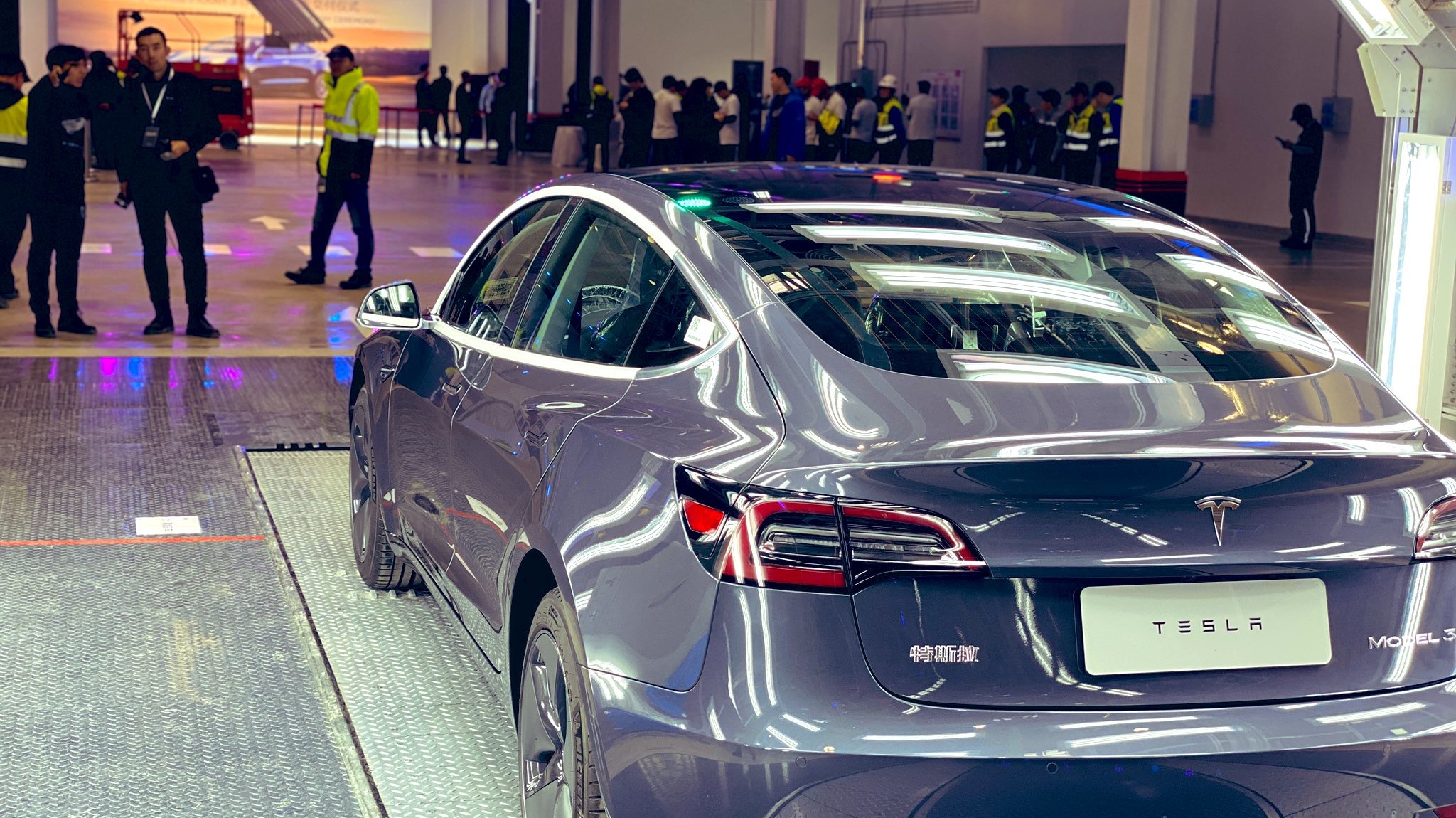
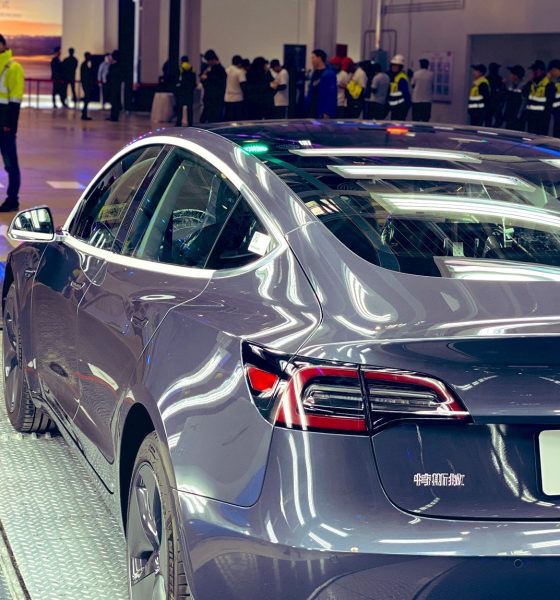
News
Tesla China sees surge in Model 3 demand by 450% as economy rebounds
Tesla’s vehicle sales have picked back up in China last March following a slow February. The electric automaker’s registrations of its most affordable sedan, the Model 3, spiked 450% in March compared to the prior month, according to LMC Automotive, a United Kingdom-based research company.
According to LMC, Tesla’s registration numbers rose to 12,709 in March. This figure stands in stark contrast to February, where only 2,314 Teslas were registered in China. The spike in numbers could be due to the Chinese government’s lift on COVID-19 quarantine measures. China was, for a considerable amount of time, the leader in reported cases of the coronavirus.
However, Wuhan, widely considered as the epicenter of the outbreak, has reopened for business, along with many other Chinese populated cities. Tesla’s store in Wuhan reopened on March 30 after a two-month closure.
Although Tesla stores and public facilities were closed for an extended period following the outbreak of the virus, the company took extensive measures to continue offering top-quality customer service to those who were interested in purchasing an electric vehicle.
After implementing a series of measures like home deliveries, unlimited Supercharging, and webcam-based customer service to make life easier for those affected by the virus in China, Tesla has rebounded from a slow start of the year.
On the contrary, the automotive industry sank 43.4% in March as a whole in China as the pandemic continues to affect many industries across the globe, Reuters reported. Tesla’s approach in assisting customers amidst the chaos may have contributed to the company’s growth despite the general slowdown in the economy.
China has fully embraced the growing electric vehicle market. Recently, government officials announced the country would be extending subsidies for “new energy vehicles,” which are classified as any vehicle with plug-in capabilities to receive power. The subsidies are valid for another two years and were announced alongside a new plan to limit the amount of diesel emissions from trucks within large cities.
This move could entice consumers who are in the market to buy a new vehicle to purchase sustainable forms of transportation. As Tesla begins to roll out more configurations of its Model 3 in China, the car should start appealing to a bigger audience. The Model 3’s Long Range variant, which offers a WLTP-estimated 404 miles of range, for example, could appeal to families who love road trips.
It is evident that Giga Shanghai’s increased production rates, alongside the demand for EVs in the country, undoubtedly helped Tesla achieve its deliveries for the first quarter of 2020. Despite China’s automotive market seemingly falling as a whole, Tesla’s performance is spelling opposite trends as the company continues to grow in the largest car market in the world.

News
Tesla’s Apple CarPlay ambitions are not dead, they’re still in the works
For what it’s worth, as a Tesla owner, I don’t particularly see the need for CarPlay, as I have found the in-car system that the company has developed to be superior. However, many people are in love with CarPlay simply because, when it’s in a car that is capable, it is really great.
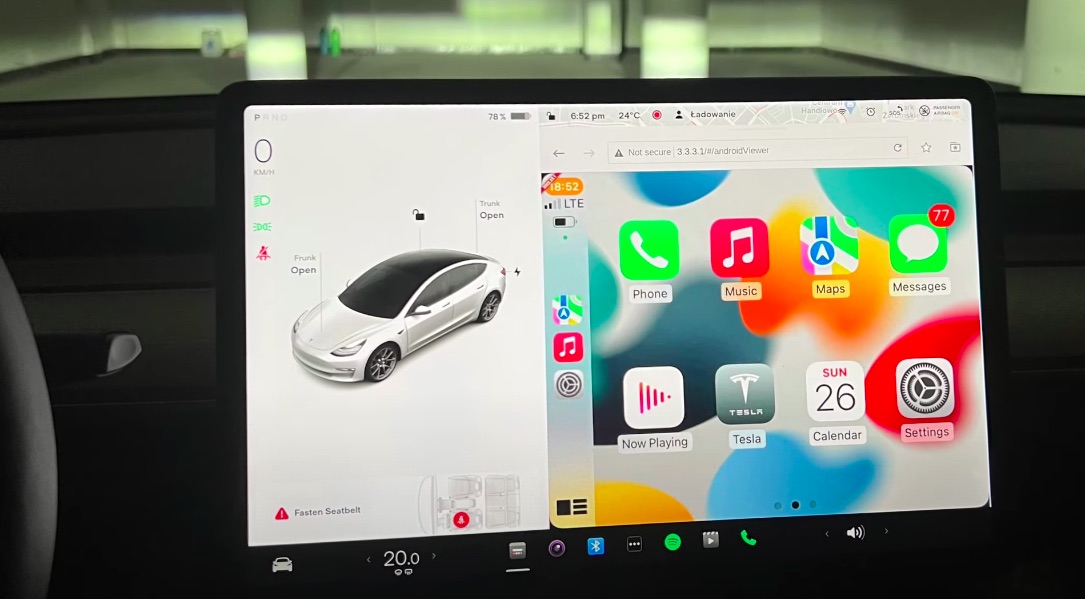
Tesla’s Apple CarPlay ambitions appeared to be dead in the water after a large amount of speculation late last year that the company would add the user interface seemed to cool down after several weeks of reports.
However, it appears that CarPlay might make its way to Tesla vehicles after all, as a recent report seems to indicate that it is still being worked on by software teams for the company.
The real question is whether it is truly needed or if it is just a want by so many owners that Tesla is listening and deciding to proceed with its development.
Back in November, Bloomberg reported that Tesla was in the process of testing Apple CarPlay within its vehicles, which was a major development considering the company had resisted adopting UIs outside of its own for many years.
Nearly one-third of car buyers considered the lack of CarPlay as a deal-breaker when buying their cars, a study from McKinsey & Co. outlined. This could be a driving decision in Tesla’s inability to abandon the development of CarPlay in its vehicles, especially as it lost a major advantage that appealed to consumers last year: the $7,500 EV tax credit.
Tesla owners propose interesting theory about Apple CarPlay and EV tax credit
Although we saw little to no movement on it since the November speculation, Tesla is now reportedly in the process of still developing the user interface. Mark Gurman, a Bloomberg writer with a weekly newsletter, stated that CarPlay is “still in the works” at Tesla and that more concrete information will be available “soon” regarding its development.
While Tesla already has a very capable and widely accepted user interface, CarPlay would still be an advantage, considering many people have used it in their vehicles for years. Just like smartphones, many people get comfortable with an operating system or style and are resistant to using a new one. This could be a big reason for Tesla attempting to get it in their own cars.
Tesla gets updated “Apple CarPlay” hack that can work on new models
For what it’s worth, as a Tesla owner, I don’t particularly see the need for CarPlay, as I have found the in-car system that the company has developed to be superior. However, many people are in love with CarPlay simply because, when it’s in a car that is capable, it is really great.
It holds one distinct advantage over Tesla’s UI in my opinion, and that’s the ability to read and respond to text messages, which is something that is available within a Tesla, but is not as user-friendly.
With that being said, I would still give CarPlay a shot in my Tesla. I didn’t particularly enjoy it in my Bronco Sport, but that was because Ford’s software was a bit laggy with it. If it were as smooth as Tesla’s UI, which I think it would be, it could be a really great addition to the vehicle.
News
Tesla brings closure to Model Y moniker with launch of new trim level
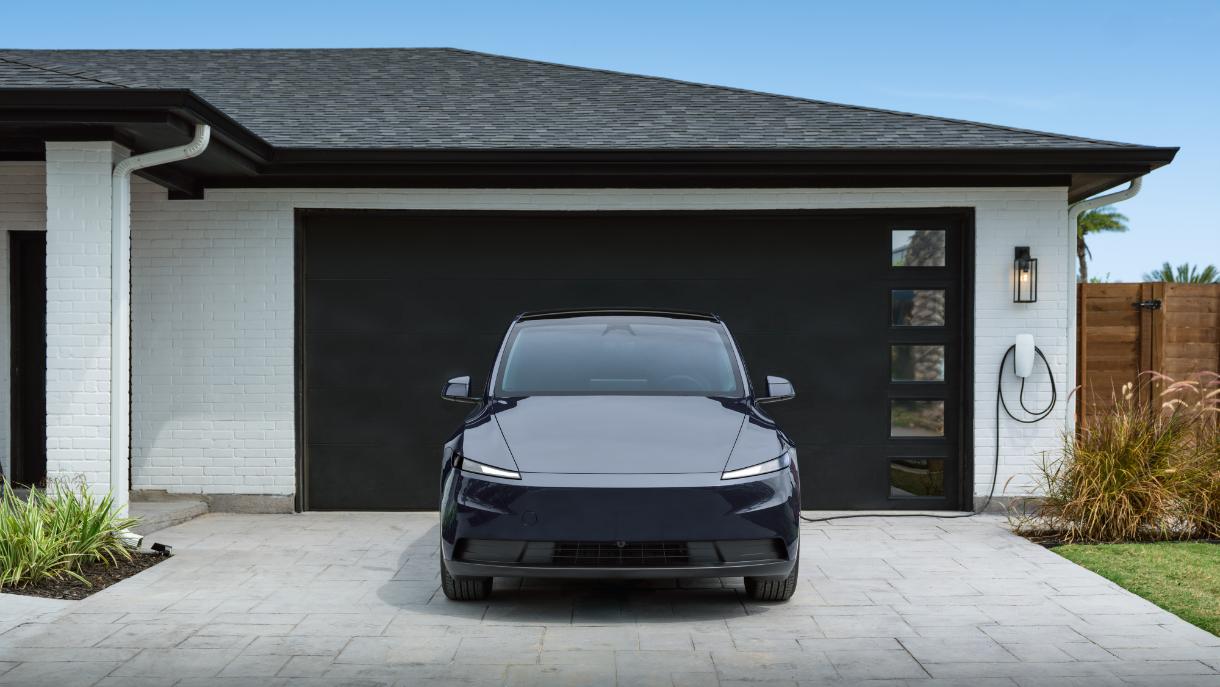
With the launch of a new trim level for the Model Y last night, something almost went unnoticed — the loss of a moniker that Tesla just recently added to a couple of its variants of the all-electric crossover.
Tesla launched the Model Y All-Wheel-Drive last night, competitively priced at $41,990, but void of the luxurious features that are available within the Premium trims.
Upon examination of the car, one thing was missing, and it was noticeable: Tesla dropped the use of the “Standard” moniker to identify its entry-level offerings of the Model Y.
The Standard Model Y vehicles were introduced late last year, primarily to lower the entry price after the U.S. EV tax credit changes were made. Tesla stripped some features like the panoramic glass roof, premium audio, ambient lighting, acoustic-lined glass, and some of the storage.
Last night, it simply switched the configurations away from “Standard” and simply as the Model Y Rear-Wheel-Drive and Model Y All-Wheel-Drive.
There are three plausible reasons for this move, and while it is minor, there must be an answer for why Tesla chose to abandon the name, yet keep the “Premium” in its upper-level offerings.
“Standard” carried a negative connotation in marketing
Words like “Standard” can subtly imply “basic,” “bare-bones,” or “cheap” to consumers, especially when directly contrasted with “Premium” on the configurator or website. Dropping it avoids making the entry-level Model Y feel inferior or low-end, even though it’s designed for affordability.
Tesla likely wanted the base trim to sound neutral and spec-focused (e.g., just “RWD” highlights drivetrain rather than feature level), while “Premium” continues to signal desirable upgrades, encouraging upsells to higher-margin variants.
Simplifying the overall naming structure for less confusion
The initial “Standard vs. Premium” split (plus Performance) created a somewhat clunky hierarchy, especially as Tesla added more variants like Standard Long Range in some markets or the new AWD base.
Removing “Standard” streamlines things to a more straightforward progression (RWD → AWD → Premium RWD/AWD → Performance), making the lineup easier to understand at a glance. This aligns with Tesla’s history of iterative naming tweaks to reduce buyer hesitation.
Elevating brand perception and protecting perceived value
Keeping “Premium” reinforces that the bulk of the Model Y lineup (especially the popular Long Range models) remains a premium product with desirable features like better noise insulation, upgraded interiors, and tech.
Eliminating “Standard” prevents any dilution of the Tesla brand’s upscale image—particularly important in a competitive EV market—while the entry-level variants can quietly exist as accessible “RWD/AWD” options without drawing attention to them being decontented versions.
You can check out the differences between the “Standard” and “Premium” Model Y vehicles below:
@teslarati There are some BIG differences between the Tesla Model Y Standard and Tesla Model Y Premium #tesla #teslamodely ♬ Sia – Xeptemper
Elon Musk
Tesla bull sees odds rising of Tesla merger after Musk confirms SpaceX-xAI deal
Dan Ives of Wedbush Securities wrote on Tuesday that there is a growing chance Tesla could be merged in some form with SpaceX and xAI over the next 12 to 18 months.
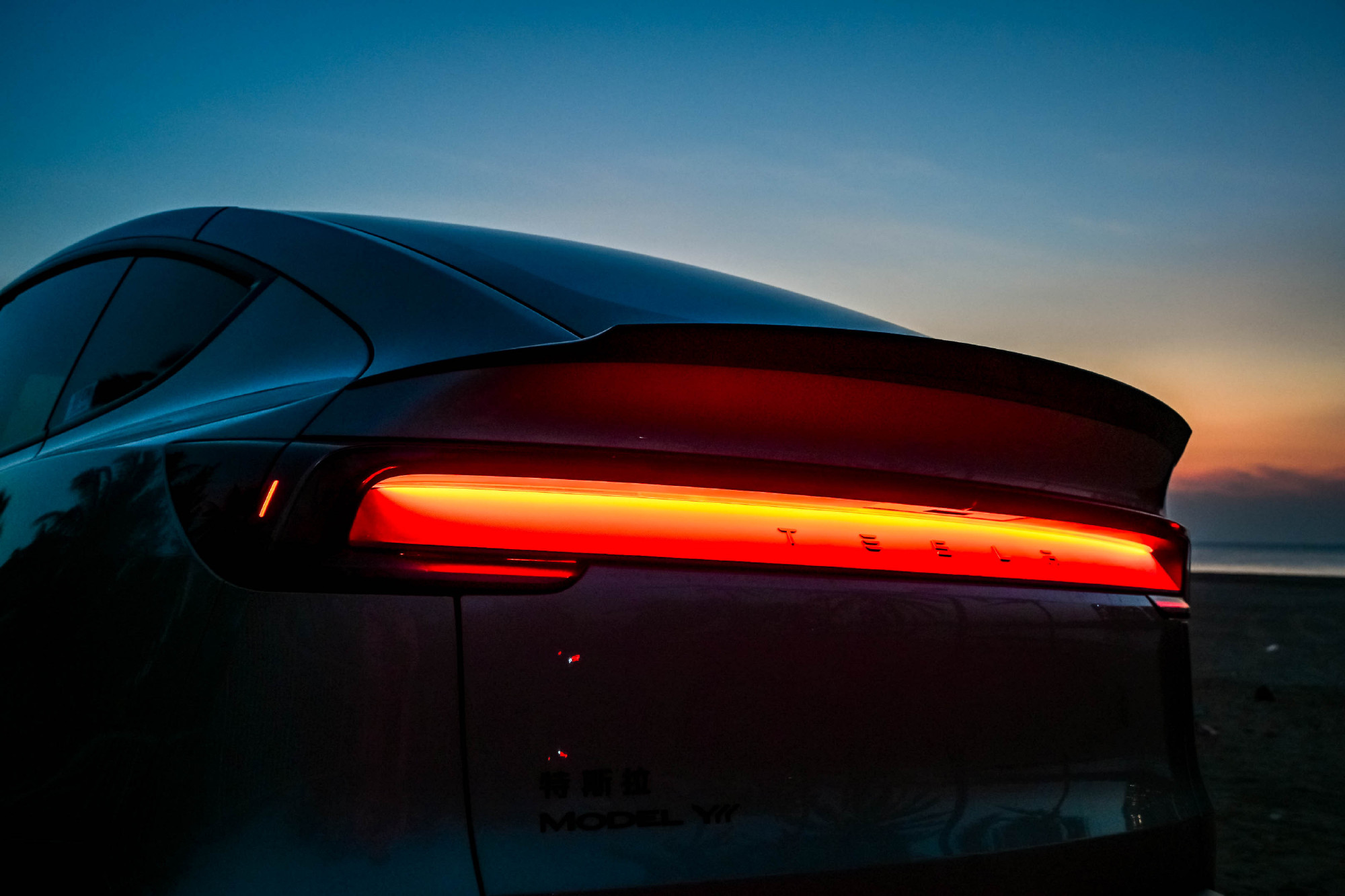
A prominent Tesla (NASDAQ:TSLA) bull has stated that the odds are rising that Tesla could eventually merge with SpaceX and xAI, following Elon Musk’s confirmation that the private space company has combined with his artificial intelligence startup.
Dan Ives of Wedbush Securities wrote on Tuesday that there is a growing chance Tesla could be merged in some form with SpaceX and xAI over the next 12 to 18 months.
“In our view there is a growing chance that Tesla will eventually be merged in some form into SpaceX/xAI over time. The view is this growing AI ecosystem will focus on Space and Earth together…..and Musk will look to combine forces,” Ives wrote in a post on X.
Ives’ comments followed confirmation from Elon Musk late Monday that SpaceX has merged with xAI. Musk stated that the merger creates a vertically integrated platform that combines AI, rockets, satellite internet, communications, and real-time data.
In a post on SpaceX’s official website, Elon Musk added that the combined company is aimed at enabling space-based AI compute, stating that within two to three years, space could become the lowest-cost environment for generating AI processing power. The transaction reportedly values the combined SpaceX-xAI entity at roughly $1.25 trillion.
Tesla, for its part, has already increased its exposure to xAI, announcing a $2 billion investment in the startup last week in its Q4 and FY 2025 update letter.
While merger speculation has intensified, notable complications could emerge if SpaceX/xAI does merge with Tesla, as noted in a report from Investors Business Daily.
SpaceX holds major U.S. government contracts, including with the Department of Defense and NASA, and xAI’s Grok is being used by the U.S. Department of War. Tesla, for its part, maintains extensive operations in China through Gigafactory Shanghai and its Megapack facility.








